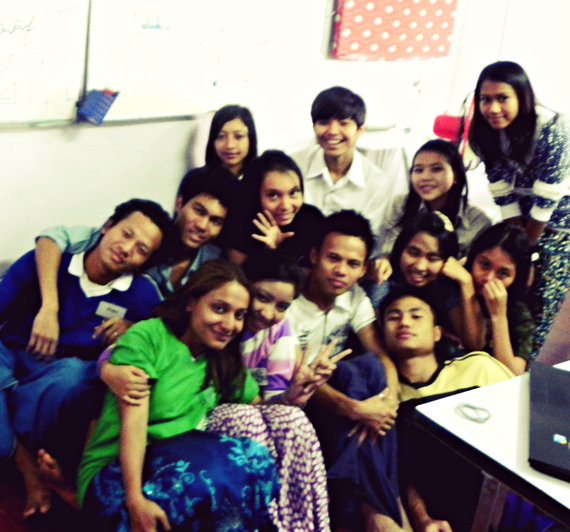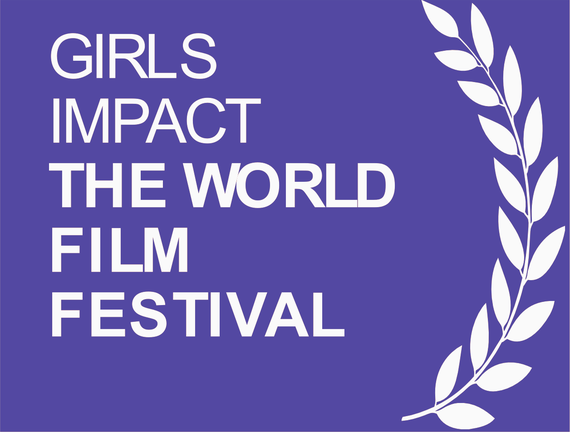Azmina Karim - Bangladesh
We achieve success at Connecther.org when our stakeholders achieve success. Azmina Karim, a young woman from Bangladesh who is passionate about uplifting the voices of women and girls in her country, is one such stakeholder. The winner of last year's People Choice award for Connecther's Girls Impact the World Film Festival, she is also one of Connecther's first international fellows and she received a grant to travel to help uplift the voices of Burmese refugees in Thailand. The opportunity to help advance Azmina's dream to be a social advocate is beyond exciting. I admire her courage to fight for gender equality in her country and am so grateful that we can provide opportunities for her and our other fellows to thrive. Lila Igram, Founder, Connecther
Teaching Filmmaking to Burmese Refugee Students Was An Eye-opening Experience
By Azmina Karim
Edited by Elaine Robbins
It has been an exciting year since my short film, Because I Am a Girl, won the People's Choice Award at the Connecther's Girls Impact the World Film Festival in 2013. Supported by a grant from Connecther, a communication and crowd-funding platform that works to advance women and children globally, I taught filmmaking to migrant Burmese students at Minmahaw School. The school is in Mae Sot, Tak province, western Thailand, on the border with Myanmar, where 30,000 school-age Burmese migrant students live. The project enabled me to make an impact by sharing the voices of young refugees--a marginalized group who rarely have their voices heard.
Azmina (in green) spends her final day with Burmese migrant students in Thailand
My film was about domestic violence in Bangladesh, so I thought I knew something about fear and oppression. Alas, nothing prepared me for the heartbreaking stories I heard from my students as they wrote about their lives in their journals for my creative writing class. One student expressed the anger he felt at the Burmese military when he described how his village was burned and people lost their homes. Another recalled how she and her mother had to sell bread everyday and walk for miles to nearby villages, so they could earn enough money to buy food. "Sometimes I couldn't walk any further, she wrote, "because I was hungry and starving to eat something. But I had to; otherwise, my family wouldn't have enough money to buy their meal."
Working with co-teacher Jonathan Birtwell, we asked the students to investigate the most pressing issues affecting Burmese migrants. They came up with several topics: selling of young daughters, child marriage, and a lack of educational opportunities and health facilities faced by Burmese migrants living in Mae Sot (films can be seen here: Burden or Boon, Out of the Frying Pan & Sex-trafficking, Modern Day Slavery in Thailand). To follow up, we conducted interviews with young Burmese girls who got trafficked along the Thailand-Myanmar border. Most of the girls we talked to revealed that they had been given false promises of getting a decent job with a high salary.
When they arrived in Mae Sot, however, they were forced to work as sex workers. Due to the social stigma associated with sex workers, they were reluctant to go back to their families and lived miserable lives for years. The students also learned about the lives of Burmese migrants in Thailand, especially those living in the refugee camps. On a positive note, they found organizations that work for the betterment of refugees, and one group of students focused their work on an organization that helps Burmese women living with HIV.
As I got to know my students better, I started to understand more about the reality of their lives as refugees in Thailand. They lived in constant fear and could not move around easily because getting caught by the police would mean having to pay a huge bribe to be set free. Once, a sex worker we interviewed asked us to take her to the hospital because she was having severe shoulder pain. However, on the day we showed up, she refused to go with us to the hospital for fear that she might be arrested without an ID card.
In the end, our students produced three revealing documentaries about sex trafficking and the plight of Burmese immigrants in Thailand. This project was particularly very challenging for the students, as this was their first time to conduct interview and field research work. It offered an opportunity for them to actualize what they had learned in the classroom and use it to give back to their community.
For me, getting to know these students was the most eye-opening part of the experience. Despite the hardships they carried in their hearts every day, they were always full of life, and they displayed warmth that melted my heart. Their positivism seemed to lighten their suffering. They asked me many questions about the world and were so appreciative about my effort to teach them something new. When I spent time with them, life seemed just right. While my students found their voices, I found a new appreciation for life.
Azmina's short film Because I Am a Girl, a powerful indictment of domestic violence in Bangladesh, won the People's Choice Award at Connecther's Girls Impact the World Film Festival 2013. She is a research study coordinator at the Asian University for Women, where she is currently working along with other principal investigators researching the effects of women's education and employment on gender relations in the family in South and Southeast Asia, a project funded by the Ford Foundation.
The Girls Impact the World Film Festival is an initiative of Connecther, co-sponsored by the Harvard College Social Innovation Collaborative and co-directed by Ara Parikh, Kerry Hammond and Lila Igram.


No comments:
Post a Comment